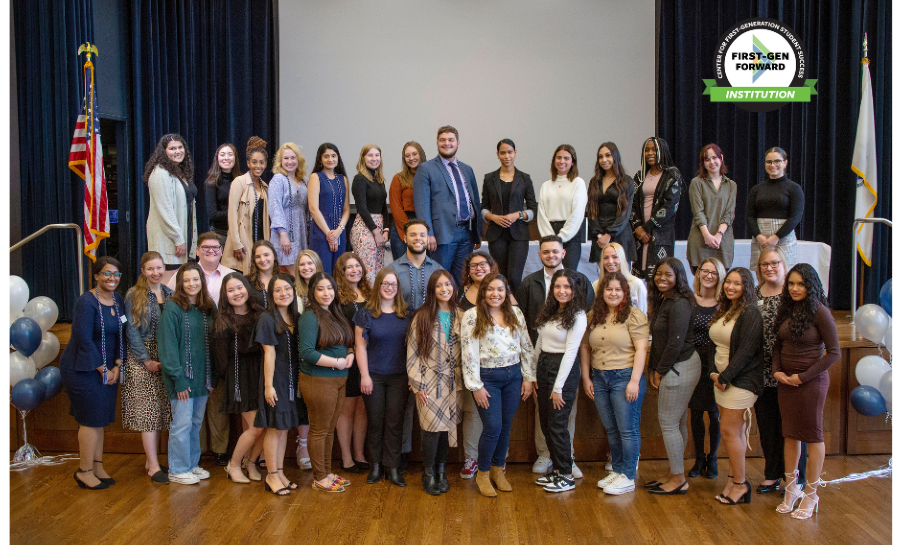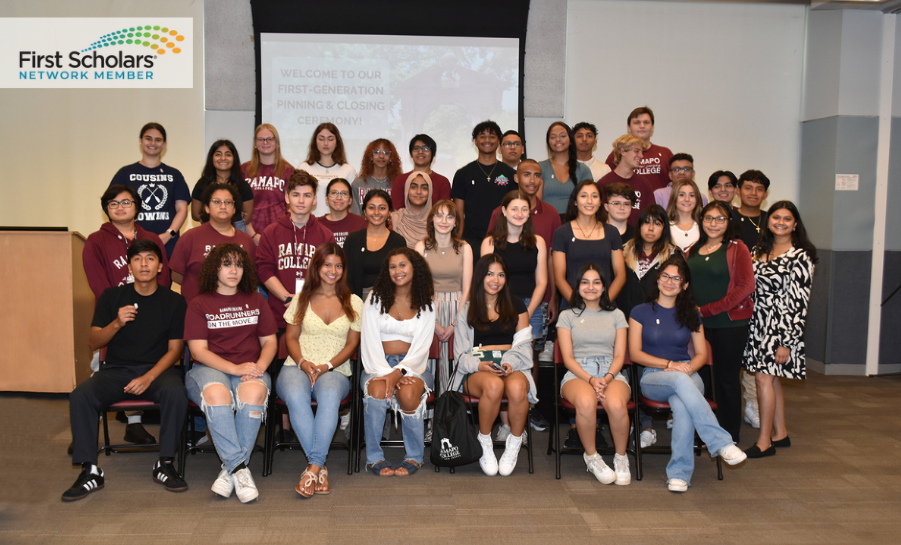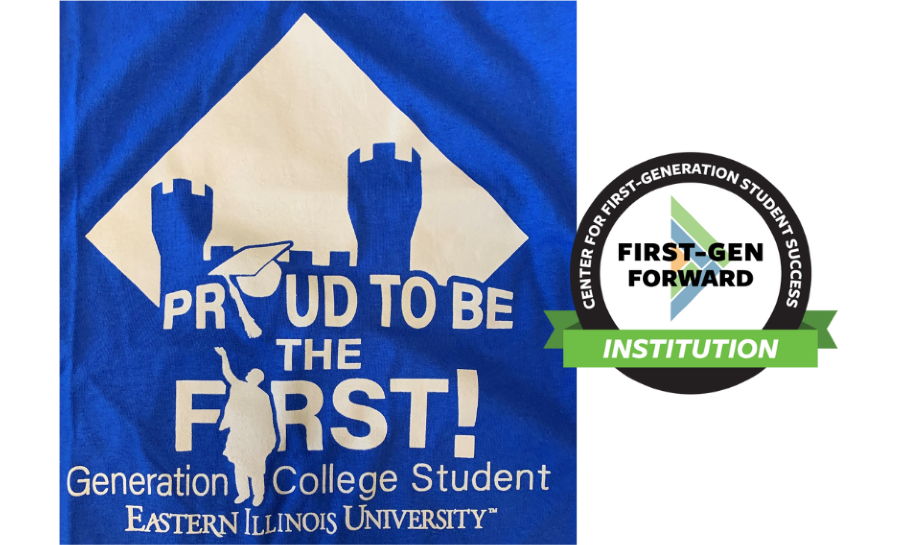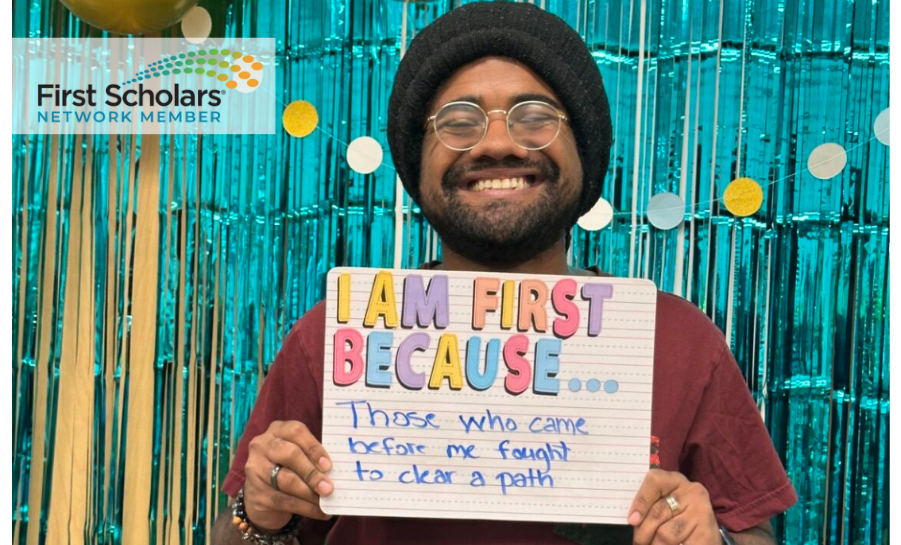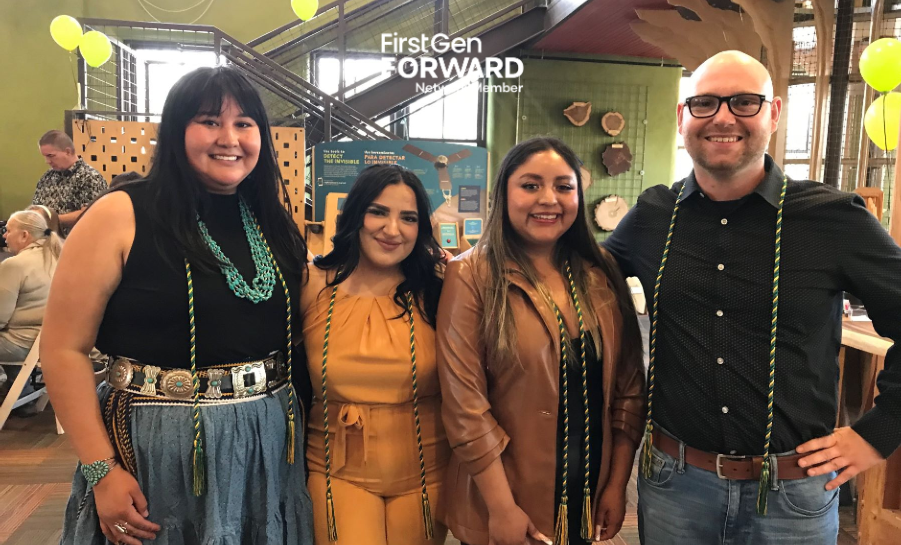Ten Tips and Tricks Every First-Gen College Student Should Know
Henry Kilpatrick, Jackson State Community College / FirstGen Forward / January 23, 2024
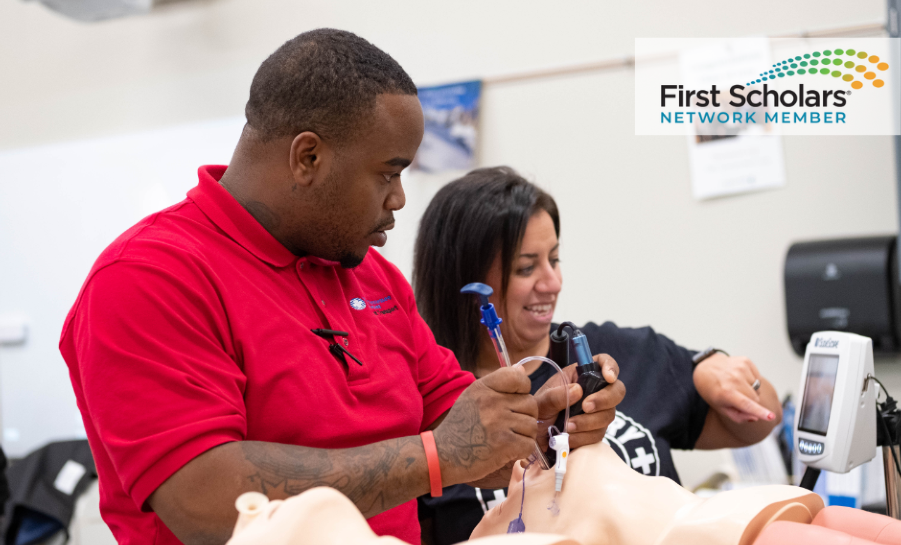
So, you took the leap and enrolled in college. (Congrats!) You’re now the first person in your family to pursue higher education, and you don’t know where to start. Unlike your peers, whose families may have gone to college for a generation or more, you are starting from ground zero. First-generation college students are some of the most driven students on a college campus, as they break generational norms and work to provide a better future for themselves and their families. However, these students must overcome many obstacles pertaining to the world of academia that they’ve never been exposed to.
We put together a top 10 list of tips (and tricks) you should know as a first-generation college student to give you a leg up on your college journey.
1. Ask for help
You don’t know what you don’t know, and that’s okay! Many colleges have resources that are there to help you, so be sure to find them. Colleges, such as Jackson State Community College (JSCC), have advising offices, dedicated counselors geared toward first-gen students, and quite a few faculty and staff that are first-gen students just like you and happy to help. Find your way to the student center on any campus and ask around. You’ll be surprised at the wealth of knowledge within the walls of that building. Look for an information desk and just ask questions. They will steer you in the right direction to get you the assistance you need.
2. Get involved!
Every campus has some form of student life ranging from clubs and activities to intramural sports and more. Ask for the Student Government Association (commonly known as SGA), and they can get you information about clubs and more. There's no better place to get details about student life than straight from the source: the students themselves! Studies have shown that students who get involved in campus activities tend to not only enjoy their time in college more, but share a sense of belonging, make more friends, and find more success in their college career. Get involved on campus! You might just find some other first-gen students to share your college experience with.
3. Paying for college


College can be expensive, but through grants and scholarships such as TN Promise and TN Reconnect in Tennessee, you can make a college education vastly more affordable. Many states across the country have similar programs, so reach out to a college recruiter or the college’s financial aid office to learn more about the aid you might be eligible for. You can even get questions answered about the FAFSA to help you get it completed before the annual deadline. (Oh yeah, more academia jargon, sorry!) The FAFSA is the Free Application for Federal Student Aid and, by filling it out, opens your eligibility for aid.
Something many first-gen students don’t know is that many colleges also have financial assistance through their college, programs, etc. to help with books, fees, and more. If you need more assistance, talk to your advisor, and they can point you to available resources.
4. College can be flexible
Majors and other academic programs are more flexible today than ever before in how students can enroll in their classes. In-person/on campus courses remain a popular choice, but online courses have gained popularity depending on the program. But did you know that there are things called “hybrid courses”, too? These courses allow you to tailor your virtual or in-person attendance depending on your schedule, with some courses having a set schedule, and others being come-and-go depending on what works for you. When you meet with your advisor, ask about these options, as they might be a better option for your schedule or may be better based on your learning style.
5. On campus resources


Need help paying for books? Car broke down and can’t get to school? Maybe you need help with that paper or course you’ve been struggling in…
Many first-gen and other students might not be aware that most colleges have scholarships, grants, funds, and centers to help pay for various academic-related expenses. Life happens, and these resources are in place to help temporarily take that financial burden off a student so they can continue to focus on their studies and do well in school. So, whether you need help with writing a paper, or if life happens and you find yourself in a situation where you need help and don’t know where to turn, reach out to the Dean of Students or your advisor to see what resources are available.
6. Your professors are a window to your career.
Professors have a wealth of knowledge, teaching on subjects they are not only passionate about, but have extensive career experience in. Many of them have plenty of industry and academic contacts they have built throughout their career and can give you advice about your career goals to get you where you want to be. Whether you’re looking to transfer to a four-year university, or have your sights set on a career, reach out to your professor for insight and they can help you as you take your next step in your academic journey.
7. Go travel the world, you won’t regret it!
Study Abroad. That’s it. That’s the tip. Imagine studying History in Rome, Art in Paris, Literature in the United Kingdom, and more. College is the best time to take advantage of traveling, especially when you get to take courses for-credit or have some of your travel expenses covered through financial aid!
8. Grades aren’t everything


Seriously, they aren’t. While you should strive to do your best in your studies, sometimes classes just don’t click. Maybe you need a tutor or perhaps even academic support services. Regardless of what the grade is, you can always retake a course for a better grade. Everyone doesn’t always receive their best grade on the first try, and that’s alright. That’s what learning is all about.
9. Things change, and so can your major.
Studies show that the average college student changes their major at least three times. Sometimes, you go into college having a slight idea of what you want to do, but you’re not sure what major will get you there. Other times, you just know. Talk to your advisor about your career goals and what major will help you get there. But know that it’s okay to get halfway through the semester and say, “this isn’t for me.” Generations of college students have said the same thing, and then found the career of their dreams.
10. You have options when it comes to your education.
Whether you’re looking to go to a two or four-year institution, everyone’s path may look a little different. Some students may take advantage of the grants and scholarships at a two-year college before transferring to a four-year, while others may do a career-ready degree at a two-year and immediately jump into their career field. Regardless of what everyone else is doing, look at your options and make the best decision that is right for you and your future.
